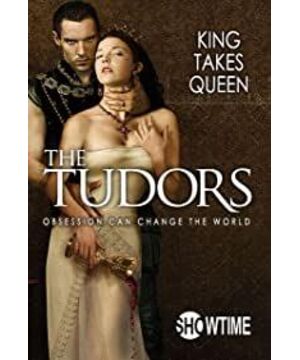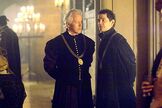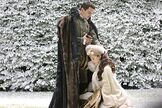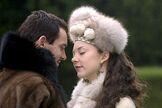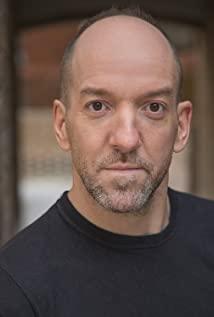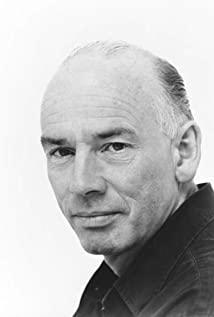In The Tudors, Thomas More appeared as King Henry VIII's spiritual mentor. Although different from many famous teachers of kings in history, such as Aristotle, the teacher of Alexander, the teacher of the tyrant Nero, Seneca, the teacher of the tyrant Nero, Thomas More is not the teacher of King Henry VIII, and has no teacher's name. However, as a well-known humanist at the time, a good friend of Erasmus, a moral and well-regarded lawyer, member of parliament, and Attorney General of London, he was highly respected and admired by Henry VIII. Thomas More was a man of great character, with a near-perfect family, a role model for the world, and no doubt a man of saintly character in the Tudor era - officially posthumous three hundred years after his death. He is also a world-recognized great scholar, who has read a lot of books and learned a lot about it. In 1516, his book "Utopia" shocked the entire Christian world. At the same time, he is also a social activist who is upright, upholds justice, and cares about the suffering of the people. For the young Henry VIII, Thomas More was a near-perfect figure who could be called a mentor, and it was a pleasure and decency to approach More and listen to his teachings. More's humanistic ideas and religious views once attracted the king. And it is not unimportant that More was neither ambitious nor conceited, and was loyal to King Henry VIII: he did not flirt with France, or covet the papacy, as Lord Volsey did. Unlike Queen Catherine who always had a soft spot for the Habsburgs. Therefore, the young Henry VIII held him in high esteem, treating More like his own teacher. There is such a scene to bear witness: Once at the French court, the kings (and cousins) of England and France - Henry VIII and François I, who were also young and vigorous - suddenly had a physical conflict, and the whole house was shocked. No one dared to step forward to persuade. At that time, More stepped forward and stopped Henry VIII's reckless behavior with a few powerful words. It can be seen that Moore's status in the hearts of young Henry VIII is not comparable to others, even the powerful cardinal and justice Wolsey.
Thomas More seems to have come out of his own utopian world, or left from heaven to the next world: he is tall and burly, handsome, quiet and majestic, with a dignified face and a gentleman's style on all sides; However, the surface is the same: he is upright and loyal by nature, maintains justice, is not afraid of power, is not tempted, does not change his ignorance, is cynical, and walks the straight path. As an outstanding humanist, his masterpiece "Utopia" deals with problems in many fields of human beings, and enlightens future generations with the wisdom of Aisi. As a person with authority, a justice under one person and above ten thousand people, Thomas More made others pay a heavy price for himself, and even his life; as a saint recorded in history, he used Famous religious persecutors and martyrs have attracted the attention of the world.
One incident highlights Thomas More's devotion to his faith. Wolsey, a cardinal and a lifelong plenipotentiary appointed by the Pope, convened a synod of envoys in Paris and fought desperately to prove the legitimacy of the marriage of Henry VIII and Anne Boleyn, which he regained the king's favor. only chance. He tried his best to persuade Thomas More to stand on his side and take the most crucial bargaining chip for the immediate last battle. In the face of Wolsey's earnest persuasion, Thomas More remained unmoved and categorically refused his request, which eventually led to the death of the chief minister who had been in power for 14 years in the early days of Henry VIII. .
Another scene is even more embarrassing. In a church, he was sharply accusing a famous Protestant of converting him to Catholicism, and the next scene was: the unyielding Protestant was tied up on a pile of dry wood, and the fire ignited, Tongues of flame devoured the living body, and Thomas More stared indifferently at what was happening, indifferent to the disappearance of life. In Britain, Thomas More, who always advocated non-violence, opposed war, and paid attention to the suffering of the people, actually led, organized and participated in a barbaric war to kill infidels.
As the only humanist of that era who could rival Erasmus and the author of Utopia, Thomas More was a humble man full of compassion for the world. He was extremely disgusted and dissatisfied with the corruption of the Christian Church and the shackles of scholasticism, and ruthlessly criticized him. At the same time, he imagined a future society in which everyone believes in God and is equal as one family. In a sense, the practices of the humanists at the time paved the way for the rise of Lutheran Protestantism. It should be pointed out, however, that humanism was moderate compared to the radical Lutheran reforms, and many well-known humanists were orthodox and devout Christians who were dead set on their beliefs. For Thomas More, Luther's Protestant Reformation really terrified him, it was a flood that subverted the entire Christian holy order! To the dismay of his friend Erasmus, Thomas More abandoned the Reformation in the years after Wolsey, who turned his hatred of Martin Luther's Protestant Reformation into a The frenzied persecution and slaughter of believers. According to historical records: as an ally of the justices and bishops, he was the first secular person to oppose the use of the English version of the Bible, and vigorously pursued a religious policy of absolutism and obscurantism: strictly prohibited the publication of any foreign publications. English books are brought into the country, and printing of any version of the Bible and religious books is prohibited in the UK without the permission of the bishop. For the so-called heretics - Lutherans, More did not show the slightest sympathy and tolerance. The former Justice Wolsey was also extremely hostile to the Protestant Reformation. His method of action was to burn books and arrest infidels, preferring to burn books but never to burn people. Wolsey couldn't bear to burn a heretic alive, Erasmus was even more indignant, and Thomas More was completely silent, which only a religious persecutor can do.
Thomas More had an almost utopian harmonious family with a cultured and humanistic atmosphere. He was personally responsible for the education of his children, especially for girls, which was rare at the time. His daughter, Margaret Robb, later became a prominent female humanist of the era. While carefully cultivating his daughter's religious temperament of compassion and compassion, he also planted the seeds of hatred for paganism in her heart. The footage of him talking to his female Margaret clearly shows this, and it just reflects Thomas More's duality in one.
As Thomas More predicted, when a lion grows up and realizes the power within him, nothing can restrain him. This is a very scary and helpless situation, and it is bound to appear. Seneca, Nero's teacher, may have had the same sense of anxiety back then. For Thomas More and his time, the grown and self-aware lion was not only Henry VIII, who was growing in his mind, but also the world, who had had enough of church oppression and was finally able to rise up. Kingship and nation-state, the famous beast "Leviathan".
Thomas More was in trouble: as a citizen, subject, adviser to the king, Lord Chancellor, he was loyal to the king, the dynasty and the country; as a devout Catholic, one of the heads of the Church of England, he The Pope, the Orthodox Catholic Church, and the old order in which the priesthood prevails over kingly authority are devoted to allegiance. When the dispute between kingship and religious power intensified in England, Thomas More's choice was: not to change his loyalty to the Catholic Church and the Pope, and to express his opposition to the establishment of the Church of England to Henry VIII in private. , resigned from all secular positions, and did not put forward political views that were contrary to the king in public. However, can he easily withdraw from the court and escape from public affairs?
Thomas More, as a moral supremacist, an idealist, and a saint who devotes himself to Catholicism, the monarch in his mind can only be an "old-fashioned monarch". The monarch bathed in the light of traditional virtue is like the influence of Confucian ethics. The next Mingjun Holy Lord. Therefore, he firmly upheld the legality of the Aragonese marriage, opposed Henry VIII's divorce from Catherine and union with Anne Boleyn; he also could not allow the Church of England to secede from Rome and Henry VIII to become secular as a result of the King's divorce case. and the injustice of the highest head of the religious world. In the end, Thomas More was imprisoned in the Tower of London for treason along with Fischer, the bishop of Rochester, and was sentenced to death. As a martyr in pursuit of justice and faith, Thomas More repeated the path of the former Seneca, and was sent to the guillotine by his old admirer, the unruly and surly Henry VIII.
Aesop, the blind man in ancient Greece, once told such a fable: a lion came to a fresco and disapproved of the scene in which humans defeated the lion. He said that if the lion was the painter, the contents of the fresco would be just the opposite . I think Thomas More may have vaguely felt that the era of a lion becoming a painter has come, but he is still willing to be a resolute martyr of the old times, a saint who does not know what the divine right of the king is.
View more about The Tudors reviews


